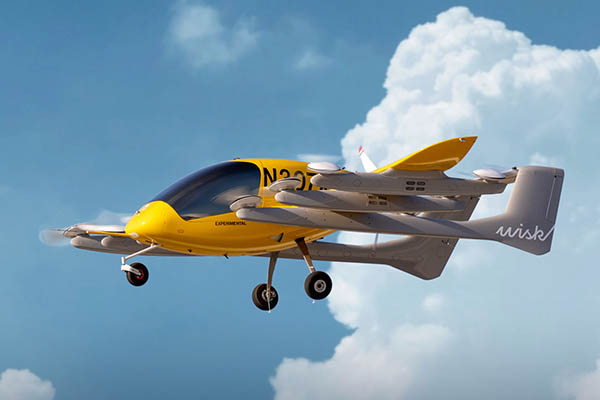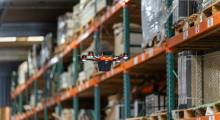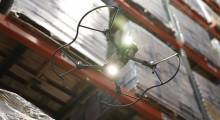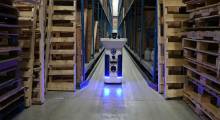While robotic taxicabs are still being tested on the ground, some companies have loftier goals of autonomous passenger flights. Wisk Aero LLC this week said it has secured $450 million in funding from The Boeing Co. The Mountain View, Calif.-based company said it plans to use the funding to advance development of its air taxi, prepare for large-scale manufacturing, and intensify go-to-market efforts.
“Wisk is extremely well-positioned to deliver on our long-term strategy and commitment to safe, everyday flight for everyone,” stated Gary Gysin, CEO of Wisk. “We are incredibly fortunate to have Boeing as not only an investor, but [also] a strategic partner, which provides us with access to a breadth of resources, industry-leading expertise, a global reach, extensive certification experience, and more.”
“As we enter this next stage of our growth, this additional funding provides us with capital while allowing us to remain focused on our core business and our No. 1 priority—safety,” he added.
Wisk Aero described itself as an “advanced air mobility” (AAM) company. The company began in 2010 as Zee Aero and later merged with Kitty Hawk Corp. Wisk claimed that it has achieved a number of aviation and industry firsts, including the first flight of an autonomous all-electric, vertical takeoff and landing (eVTOL) aircraft designed for passenger use in the U.S.
Wisk logs numerous AAM test flights
Wisk said it has expertise in autonomous, electric flight, including insights from the development of five generations of aircraft over the past decade. The company, which also has offices in New Zealand, said it has conducted more than 1,500 test flights.
Self-flying eVTOL flights will enable passengers to skip over terrestrial traffic and get to their destinations faster, said Wisk. It added that it intends to operate one of the industry's largest AAM fleets within five years of the certification of its sixth-generation aircraft.
The company claimed that its autonomous technology is a competitive differentiator and the key to scaling up services while maximizing safety. Wisk said it expects up to 14 million flights annually bringing time savings to over 40 million people across 20 cities – all with zero emissions.
Self-flying eVTOL aircraft preps for certification
Wisk also touted its partnerships as it positioned itself as a leader in the AAM and broader mobility spaces. The company's founders said they spun out their team and fifth-generation aircraft from Zee Aero upon recognizing the technology's commercial potential.
Boeing and Kitty Hawk Corp. led Wisk's previously undisclosed funding rounds through a joint venture. Wisk said it is one of the only AAM startups to be privately backed by two aviation leaders. Kitty Hawk remains an investor and has supported the development of Wisk’s previous aircraft generations.
“With this investment, we are reconfirming our belief in Wisk’s business and the importance of their work in pioneering all-electric, AI-driven, autonomous capability for the aerospace industry,” said Marc Allen, chief strategy officer of Boeing. “Autonomy is the key to unlocking scale across all AAM applications, from passenger to cargo and beyond. That’s why straight-to-autonomy is a core first principle.”
Wisk said the $450 million from Boeing makes it one of the best-funded AAM companies in the world. The company said it will grow aggressively in the coming year as it develops its sixth-generation eVTOL aircraft to be the first candidate for certification of an autonomous, all-electric, passenger-carrying in the U.S.
“Wisk is shaping the future of daily commutes and urban travel, safely and sustainably,” it said.
Article topics
Email Sign Up
















